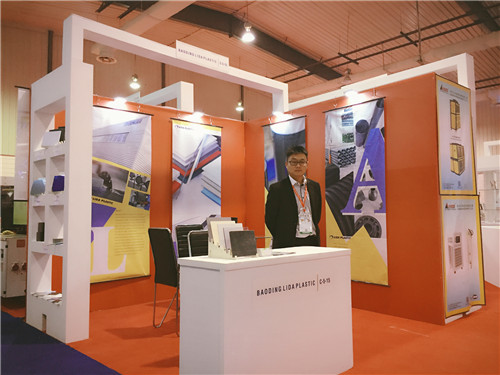নভে. . 28, 2024 05:33 Back to list
High-Density Polyethylene Pipe Solutions for Durable and Efficient Water Management
Understanding Solid HDPE Pipe Key Features and Applications
High-Density Polyethylene (HDPE) is a versatile thermoplastic that has gained significant attention in various industries due to its excellent properties. Among its many forms, solid HDPE pipe stands out as a highly effective solution for numerous applications, ranging from water supply systems to industrial processes.
HDPE pipes are made from high-density polyethylene, a type of polymer characterized by its high strength-to-density ratio. One of the most significant advantages of solid HDPE pipes is their durability. They are resistant to impact, corrosion, and a wide range of chemicals, making them an ideal choice for transporting liquids and gases. Unlike traditional materials such as metal or concrete, HDPE does not rust or corrode, which enhances its lifespan and reduces the need for frequent replacements.
Understanding Solid HDPE Pipe Key Features and Applications
One of the standout properties of solid HDPE pipes is their smooth internal surface. This smoothness minimizes friction, allowing for efficient fluid flow and reducing the energy required for pumping. In sewage and drainage applications, for instance, solid HDPE pipes can significantly lower the risk of clogging, improving the overall efficiency of the system.
solid hdpe pipe

The lightweight nature of solid HDPE pipes also contributes to their popularity. They are much lighter than concrete or metal pipes, making transportation and handling easier. Installation requires less manpower and heavy equipment, which can substantially reduce labor costs and project timelines. Additionally, their resistance to environmental stressors minimizes the risk of environmental degradation, thereby promoting sustainability.
Solid HDPE pipes find their applications in various sectors. In municipal settings, they are commonly used for water distribution, sewage, and stormwater management systems. Their long lifespan and low maintenance requirements make them a reliable choice for local governments and water utilities.
In the agricultural sector, solid HDPE pipes are extensively used for irrigation systems. Their resistance to chemicals and UV rays ensures they can withstand harsh outdoor conditions, promoting efficient water use in farming practices. Similarly, they are used in the mining industry for transporting slurries and other materials, where durability and resistance to abrasion are critical.
Moreover, the use of solid HDPE pipes in industrial applications cannot be overlooked. From chemical processing to manufacturing plants, these pipes are essential for conveying various fluids safely and efficiently.
In conclusion, solid HDPE pipe represents a significant advancement in piping technology. Its combination of strength, flexibility, and resistance to environmental factors makes it a preferred choice across multiple industries. As the demand for sustainable and efficient solutions continues to rise, solid HDPE pipes will undoubtedly play a crucial role in meeting the needs of modern infrastructure. Users can benefit from the long-term cost savings associated with their durability and low maintenance, making solid HDPE pipes not just a choice but a wise investment for the future.
-
Durable HDPE Sheet | Versatile & Impact-Resistant Plastic
NewsAug.13,2025
-
Premium PVC Soft Sheets: Clear, Flexible & Durable
NewsAug.12,2025
-
Premium PVC Round Rods: Durable, Chemical Resistant, Easy to Machine
NewsAug.11,2025
-
PP U-channel: Chemical-Resistant, Lightweight & Durable
NewsAug.10,2025
-
Transparent PVC Pipe: Clear Flexible Tubing for Fluids
NewsAug.09,2025
-
Durable PP Rigid Sheet: Versatile & High-Quality Plastic Panels
NewsAug.08,2025

